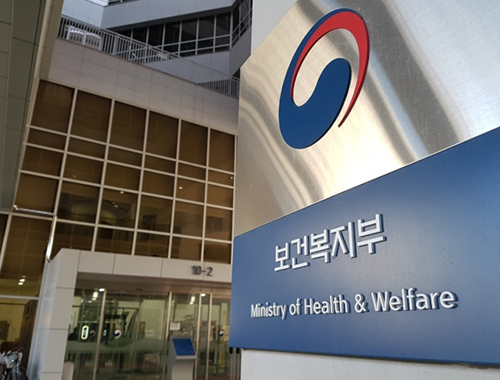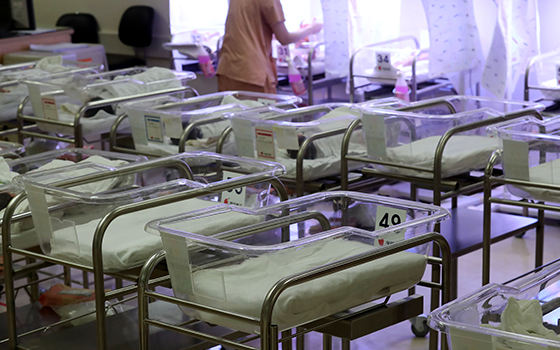S. Korea to employ AI and big data to fight world's lowest fertility rate
이 글자크기로 변경됩니다.
(예시) 가장 빠른 뉴스가 있고 다양한 정보, 쌍방향 소통이 숨쉬는 다음뉴스를 만나보세요. 다음뉴스는 국내외 주요이슈와 실시간 속보, 문화생활 및 다양한 분야의 뉴스를 입체적으로 전달하고 있습니다.

The Ministry of Health and Welfare has outsourced research on applying AI analytics to support pregnancy planning and infertility program more effectively, Maeil Business Newspaper found Tuesday.
The idea is to study successful cases of pregnancies despite diagnosis in infertility and have machine learning to come up with optimized embryo conditions.
If the idea proves feasible, it will test out the program in some local areas before applying it nationwide.
The program can enable customized infertility program for couples.
Son Moon-keum, head of fertility policy at the ministry, said that it is difficult to examine pregnancy success in infertility treatment and select so-called “good embryos” that are key to pregnancy success.
“Analyzing actual infertility treatment data through AI is expected to provide optimum treatment scheme,” Son said.
On top of declining marriages and reluctance towards giving birth, mothers-to-be are increasingly turning to fertility treatment due to older age for their first pregnancy.

The number of women diagnosed with infertility also rose 16 percent from 196,853 in 2011 to 228,696 in 2019. The success rate of fertility treatment, however, remains at between 30 and 35 percent.
The government is turning to high tech to fight the world’s bottom fertility rate that has been threatening the country with demographic cliff.
The country’s total fertility rate – the average number of children a woman bears in her lifetime – was the world’s lowest of 0.84 last year.
As a result, the country’s birth rate has been on the downward spiral. Last year, 272,300 babies were born, down 30,300 from a year ago.
[ㄏ Maeil Business Newspaper & mk.co.kr, All rights reserved]
Copyright © 매일경제 & mk.co.kr. 무단 전재, 재배포 및 AI학습 이용 금지
- Korean defense firms pitch aerospace, defense systems at ADEX 2021 - Pulse by Maeil Business News Korea
- Toss reforms wage and leave system to improve working environment - Pulse by Maeil Business News Korea
- Foreigners cherry-pick EV battery stocks while net-selling Korean stocks in Oct - Pulse by Maeil Business News Korea
- Kakao Pay’s delayed IPO to be priced at lowered band of $51-77 - Pulse by Maeil Business News Korea
- Ildong Bioscience seeks IPO for biz expansion into probiotics market - Pulse by Maeil Business News Korea
- 강경준, 상간남 피소…사랑꾼 이미지 타격 [MK픽] - 스타투데이
- 방시혁 ‘플랫폼 제국’ 꿈꿨지만…
- 대만 치어리더 한국스포츠 첫 진출…K리그 수원FC - MK스포츠
- 이찬원, 이태원 참사에 "노래 못해요" 했다가 봉변 당했다 - 스타투데이
- 양희은·양희경 자매, 오늘(4일) 모친상 - 스타투데이